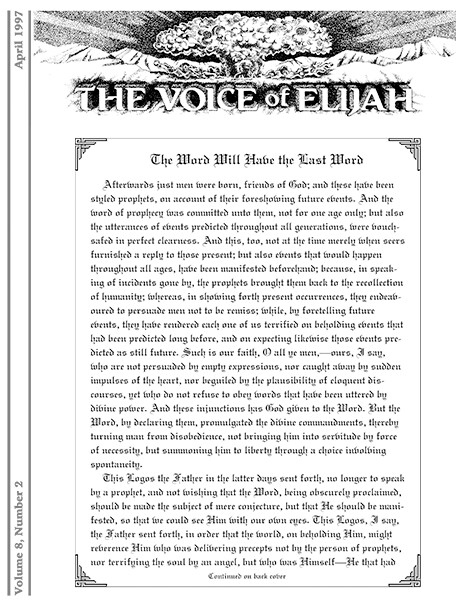The Voice of Elijah® April 1997 Newsletter
Thy Kingdom Come. Thy Will Be Done, on Earth
This article contains an explanation of what Jesus meant when He told His disciples to beware of false prophets because not everyone who calls Him “Lord” will enter the kingdom of Heaven, “but he who does the will of My Father who is in heaven” (Matt. 7:21). It explains how—in God’s view—“doing” begins with “being,” and “being” with what one believes. It shows how both have their origin in what one is able to “see.”
The Holy Bible: What Is It? What Does It Mean? Who Wrote It? When and Why?
This is the first in a series of articles that explain the nature and purpose of the Hebrew Scriptures. It builds on the information presented in the “Questions & Answers” section of the January 1997 issue. The article not only discusses the difference between the oral and written Teaching that Moses received, it also explains the essential difference between the history and prophecy in the Hebrew Scriptures. Finally, it explains the Hebrew Scriptures began as—and still are—a “witness” that will testify against the damned on Judgment Day.
Questions & Answers
One answer in this set responds to a question concerning the difference between the context and the content of the Scriptures. Another emphasizes the importance of making a distinction between the historical context of a biblical author and the historical context of what he wrote. The final answer has to do with the issue of cloning.

